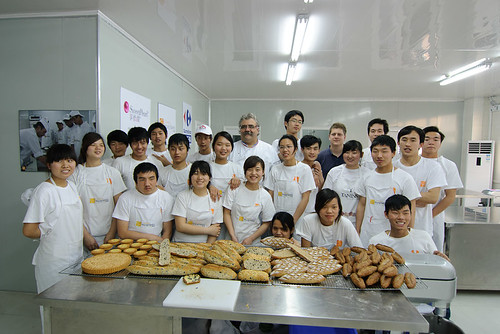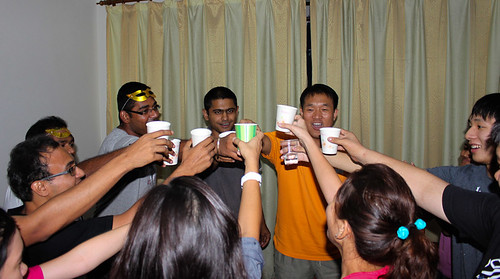Hey – this just came out. Big kudos to Jonathan for helping!
http://www.slideshare.net/bowei/the-china-startup-report-a-15min-crash-course-by-bowei-gai
-H
It was a link to a presentation on the startup scene in China and on the “Special Thanks” slide was my name.
| Is that really my name there? |
Looking at this slide with my name tagged with 500 Startups, I am amazed by how far I have come. To think that while still in college, I would have meaningful professional connections that could help someone. It just leaves me speechless.
Just a year ago, I could not drop a name to save my life. There were no relationships with professors or even high school teachers to speak of. Only when I needed a letter of recommendation to study abroad did I have my first real conversation with a professor and that relationship died as soon as he wrote that letter.
My first attempt at real networking was during my political internship in Los Angeles. The internship coordinator pushed my intern class to go forth and network any chance we got. The plan was for me to collect as many cards as I could while being as memorable as possible and then email the card givers the next day telling them how much I enjoyed meeting them. For my efforts that summer, I ended up with a large collection of business cards, but only one of those cards ever ended up in a meaningful conversation. Something just was not working.
While studying abroad in Shanghai, I made no effort to network because I believed that it would be meaningless since I would be gone in a year. I started going to networking events for the drink specials and guest speakers, making no effort to schmooze anyone into giving me their business card. Surprisingly, during my stay in Shanghai I made significantly more connections than at any other point in my life.
Thinking back, I realize there were two reasons for the explosion in connections. First, by not having networking be the end goal of meeting someone, my interactions upon meeting people for the first time became much more genuine. I cracked jokes, talked about my personal life and was just generally much more relaxed. This helped people warm up to me quickly, allowing for a connection to happen organically. Second, I got involved in a non-profit and Toastmasters. Through these two organizations, people would not only see more and more of my personality meeting after meeting, but also see the kind of skills I brought to the table through the work I did for the organization. Cementing everything together was the understanding that we were all working towards a common goal, which made the relationships extra meaningful and more resilient.
In short, if you want to make meaningful connections, skip the networking events and cocktail parties. Just keep it real and get involved.






